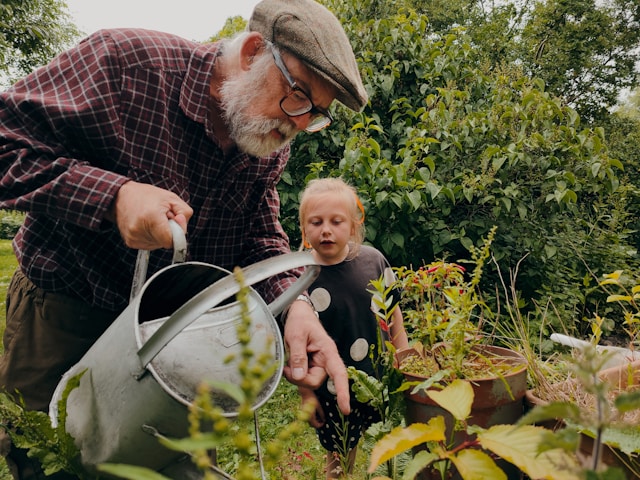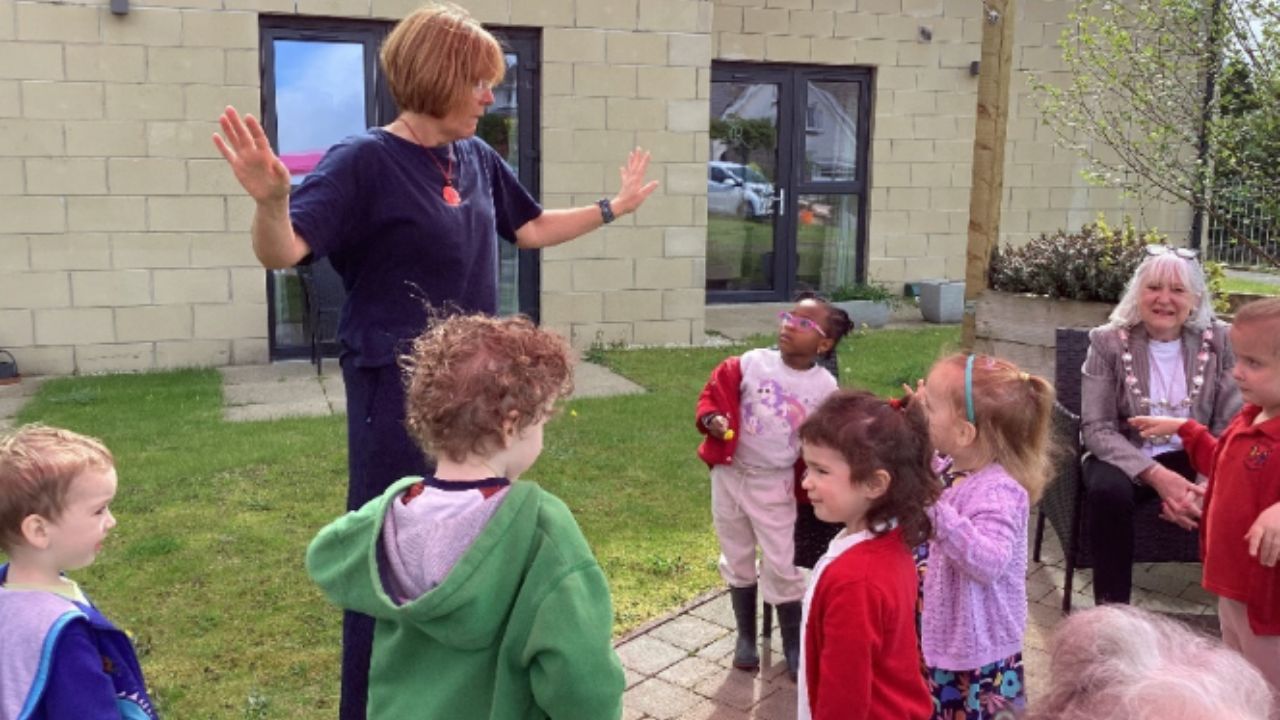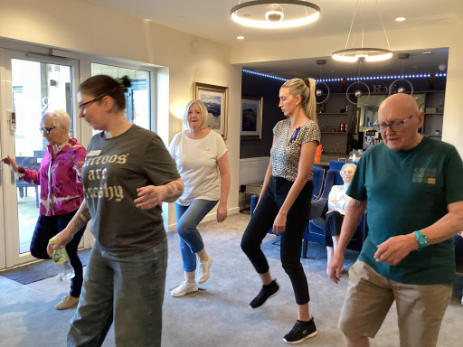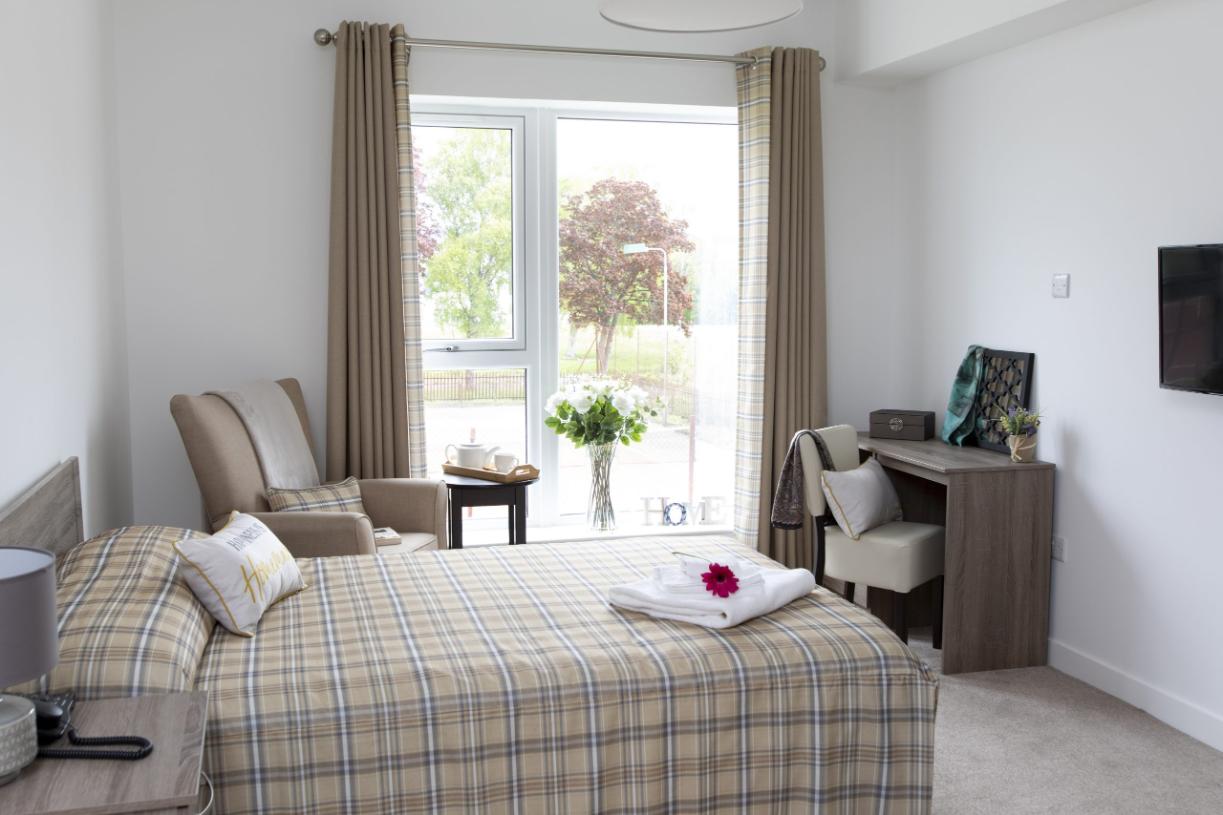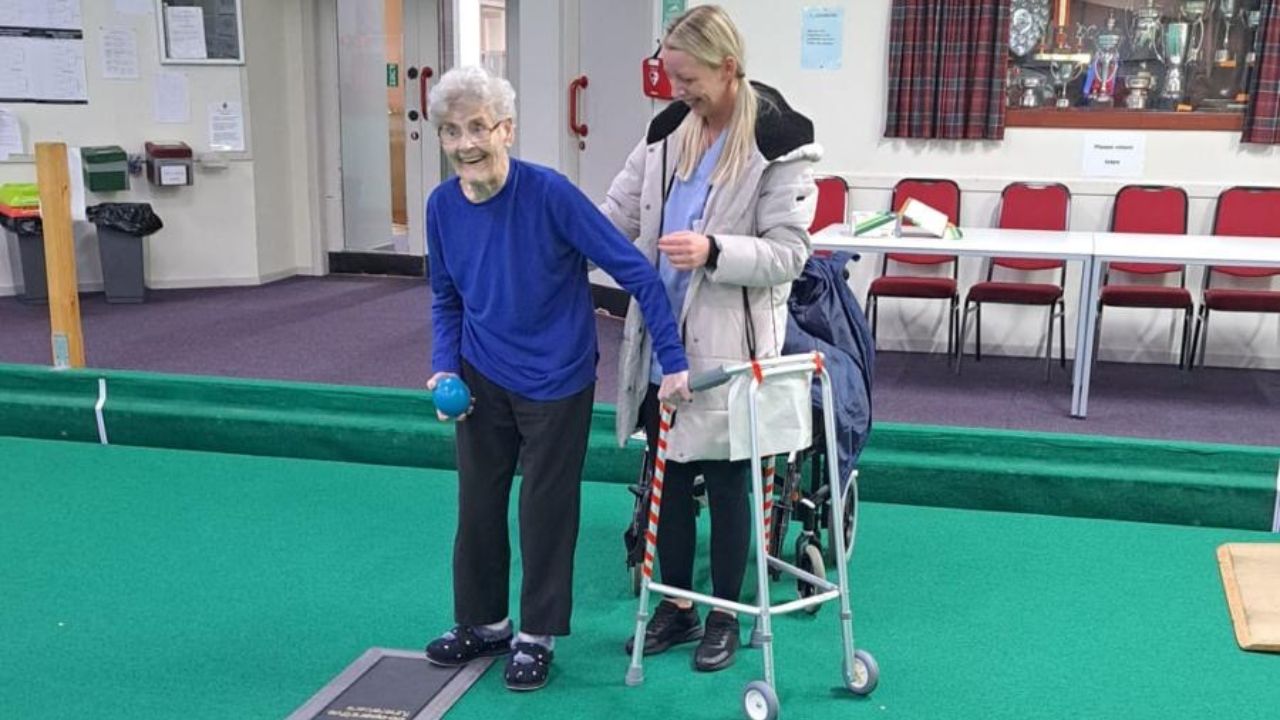How Can Palliative Care in a Care Home Support You?
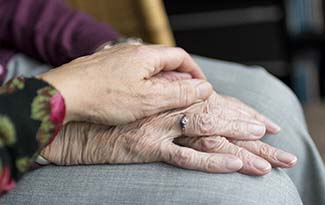
Palliative care is an approach to care that aims to improve the quality of life of individuals with serious illnesses and conditions, by providing symptom relief and practical and emotional support to the resident and their family members.
Palliative care is offered when a terminal diagnosis has been given and can last anywhere between days and weeks, up to several years. End-of-life care is a type of palliative care that supports people with serious or terminal illnesses and focuses on the needs and wishes of the individuals who are nearing the end of their lives, as well as their family and friends.

Where is Palliative Care provided?
Palliative care can be provided in a variety of settings, from care homes and nursing homes to hospices, hospitals, or even your own home. Care and support are often given by a specialist palliative care team which can include a range of healthcare professionals including community nurses, district nurses, hospital doctors, trained volunteers, hospice staff, and care home staff.
When receiving palliative care in a care home or nursing home, residents have access to around-the-clock care from palliative care teams who are made up of highly-skilled nurses and care home staff, in an environment that is nurturing and homely. Individuals receiving primary palliative care should be made to feel as comfortable as possible, with the main goal being to support those in need by managing symptoms, minimising pain, ensuring dignity, and meeting the individual's wishes.
Whether it is a care home or nursing home, there are many in Scotland and across the UK that offer palliative and end-of-life care services to their residents. This type of care can support individuals with a serious illness or life-limiting condition who may not be able to manage their mental and physical symptoms at home or who may need additional support with their day-to-day care.
What does Palliative Care in a Care Home look like?
Palliative care and end-of-life care in care homes may include a range of services such as pain management, spiritual and emotional support, and help with personal care such as bathing, dressing, and feeding. Care homes may also have a palliative care team that includes nurses, doctors, and health and social care workers who collaborate together to provide personalised care plans for residents.
A care home or nursing home with palliative care services and end-of-life care offers treatment and skilled nursing care with the aim of providing relief from both the physical symptoms and mental strains caused to both the individual and their family members.
In addition to the physical care provided by a medical team, palliative care and end-of-life care in care homes also focuses on providing emotional and spiritual support to its residents and their loved ones. This may include providing opportunities for residents to engage in activities that bring them joy and comfort and finding counselling and support groups for families.
It is important to understand that palliative care is not offered as an alternative solution to medical care, but as an additional service to provide a longer lasting, quality of life for the resident. Residents may still continue with any other treatments they are receiving or their medical team may advise that all other treatments are to stop, depending on their situation.
Receiving palliative care and end-of-life care in care homes can also help to reduce hospital admissions and readmissions. By providing high-quality care in a familiar environment, residents may be less likely to need hospital treatment for their symptoms.
Who else can be supported by Palliative Care?
When a family member or loved one has a terminal illness or serious health condition, it can be really difficult to watch them receive palliative care and also see them near the end of their life.
One of the key benefits of palliative care and end-of-life care in care homes is the support it provides to not only their residents but their families too during what can be an extremely difficult and challenging time.
Care homes can offer a safe and comfortable environment where residents can receive the care they need, and families can visit and spend as much time as they wish with their loved ones. Family members are also given both emotional and practical support, enabling them to spend as much time as possible with their loved one and helping them to prepare and plan ahead.
Palliative Care at Roselea Court Care Home in Stirling
At Roselea Court Care Home in Stirling, we provide a variety of care services for older people including Residential Care, Nursing Care, Dementia Care, Respite Care, and Palliative Care, meaning our healthcare team is well-experienced in providing a wide range of medical care services.
Our palliative care service is available to all residents in need of support during their life-limiting illness and who require end-of-life care and support, varying from natural degeneration to complex terminal pathologies. Like with all of our care services, our philosophy is improving quality of life and promoting individualised care that is tailored to the needs of each resident and their family and friends.
We take a holistic approach to care meaning that we care for our resident's overall wellbeing, and this continues throughout a resident's time with us. Even when a resident is near the end of their life, we strive to meet their personal needs and interests, from supporting them with participating in activities to ensuring they receive a peaceful death.
Our specialist palliative care team at Roselea Court Care Home have an overall responsibility to provide supportive care to residents and their family and friends and is committed to doing so to the highest standard and in the most sensitive manner.
Providing Practical and Emotional Support to You and Your Family
We understand how difficult it can be to arrange palliative care as well as watch someone you love experience palliative care or receive end-of-life care. It is a difficult time to navigate which is why we go to great lengths to make sure that the relatives and loved ones of our residents know that we are here to provide emotional support and guidance for them too.
When someone receives palliative care or end-of-life care, visitation for their friends and family members is unrestricted so that they are able to continue to share precious moments, with the comfort of having 24/7 nursing care available.
We ensure that transparency and communication are kept between our care home staff and our residents loved ones at all times. Relatives can contact us at any time for guidance and support, and even following the death of a loved one, we give relatives the time they need without rushing them to make their next steps.
We go to such great lengths to form those bonds with our residents and their loved ones, that we often find that our previous resident's families and friends keep in touch and continue with supporting our care home.
We strive for care excellence in everything that we do, and we have found that by providing our resident's families with consistent communication, emotional and practical support, and the time to resume their roles as the resident’s loved ones, we have been able to alleviate stresses and provide a comprehensive and positive experience during a vastly emotional time.
Our palliative care service encompasses the Health and Social Care Standards and we continue to collaborate with the Care Inspectorate to ensure that we meet all required elements of caring and supporting residents within our care home setting. We also work closely with Good Life, Good Death, and Good Grief, an organisation in Scotland that provides services, events, and guidance in providing the most effective palliative care and end-of-life care.
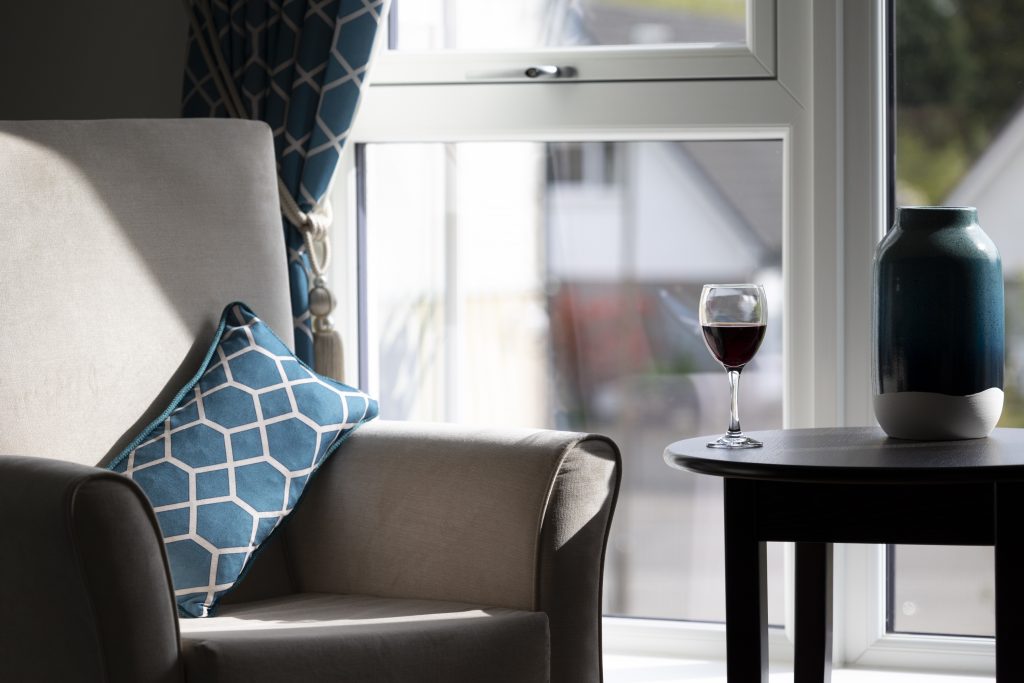

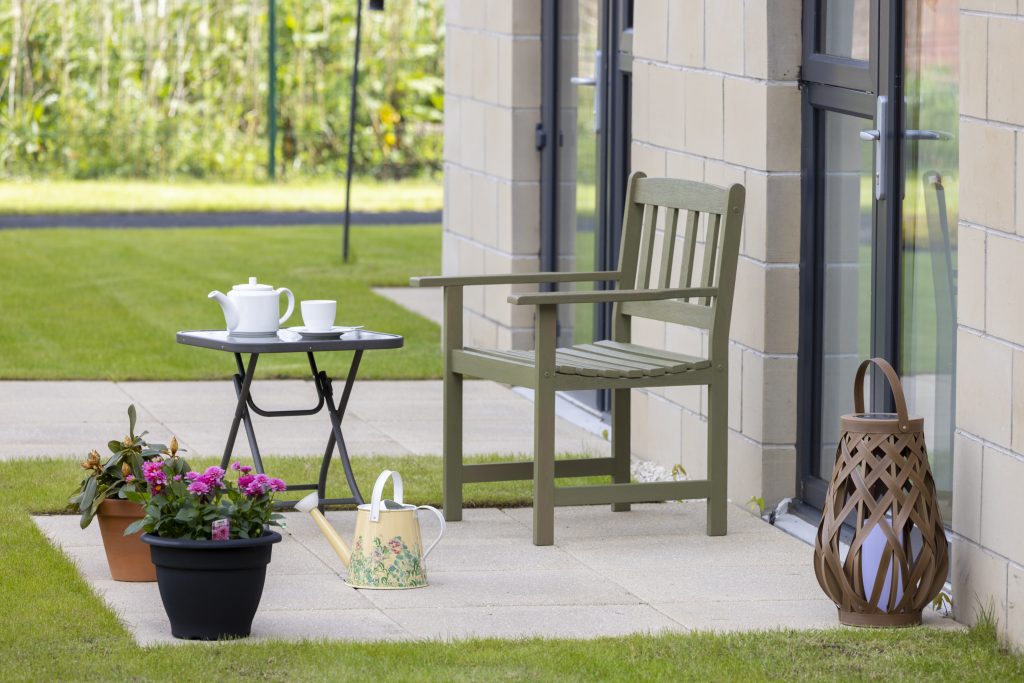
Find out More About Palliative Care at Roselea Court Care Home
At Roselea Court Care Home, we are here to answer any of your questions, alleviate stresses, and offer our help in determining what the best course of action is for you and your family.
If you would like to find out more information about how our Palliative Care and End-of-life Care services can support you, then please contact the home on 01786 644000 and request to speak to Helen Kinnard, our Home Manager.

